Leer en español: Algunas mujeres de BYU reciben presión por no conformarse con normas culturales
Editor’s note: During Winter Semester 2020, journalism students examined several societal issues that directly impact the BYU community because “The world is our campus.” This story is part of a series called “The World Meets Our Campus.”
Female professors at BYU are reaching out to female students, urging them to pursue graduate degrees despite cultural opposition.
School of Family Life professor Sarah Coyne fell in love with teaching as a 20-year-old at Utah State University.
“While working as a TA, my professor went out of town and asked me to teach,” Coyne said. “I worked with 300 students, including a distance-learning program from the Utah State Prison where people could call in. On the day I taught, I wore a yellow sweater, curled my hair, and showed a clip from Seinfeld. It was the best day ever.”
From that day on, Coyne was determined to get her Ph.D.
However, Coyne’s determination wasn’t completely free of opposition. She said while she and her husband were waiting for him to take the bar exam, they decided that she should be the primary breadwinner for a while.
“We went against every Utah County stereotype in the books, against my upbringing and everything I thought my life was going to be like,” Coyne said. “But as I look back on that time, I can’t imagine doing anything else. I feel like this is the path I was supposed to go on and I need to trust God to lead me on it.”
Others, however, did not share her optimism.
“We waited three years to have a baby so I could focus on finishing my Ph.D.,” Coyne said. “Relatives, ward members and friends would say things like ‘Why aren’t you following the prophet?’ and ‘Don’t you believe in the Church anymore?’”
Even early on in her Ph.D. studies, people would approach her with questions like these. Now as a professor, Coyne said she gets questions like, “Who’s watching your kids?” or “Aren’t you worried about your kids?”
“These are questions men never get asked,” Coyne said.
She recalled an incident a year and a half ago when a male student who came into her office and told her that she should be staying at home with her kids. He told her that he could teach her classes better because he had the priesthood.
“That wasn’t a micro-aggression, that was an overt attack on me,” Coyne said.
While many may not have had the same experiences as Coyne, she advises female students seeking graduate degrees to expect them to come.
“Educate rather than retaliate,” Coyne said, “You can get really mad and be mean back to those that are rude to you, but I always try to educate people on my journey and why I do what I do.”
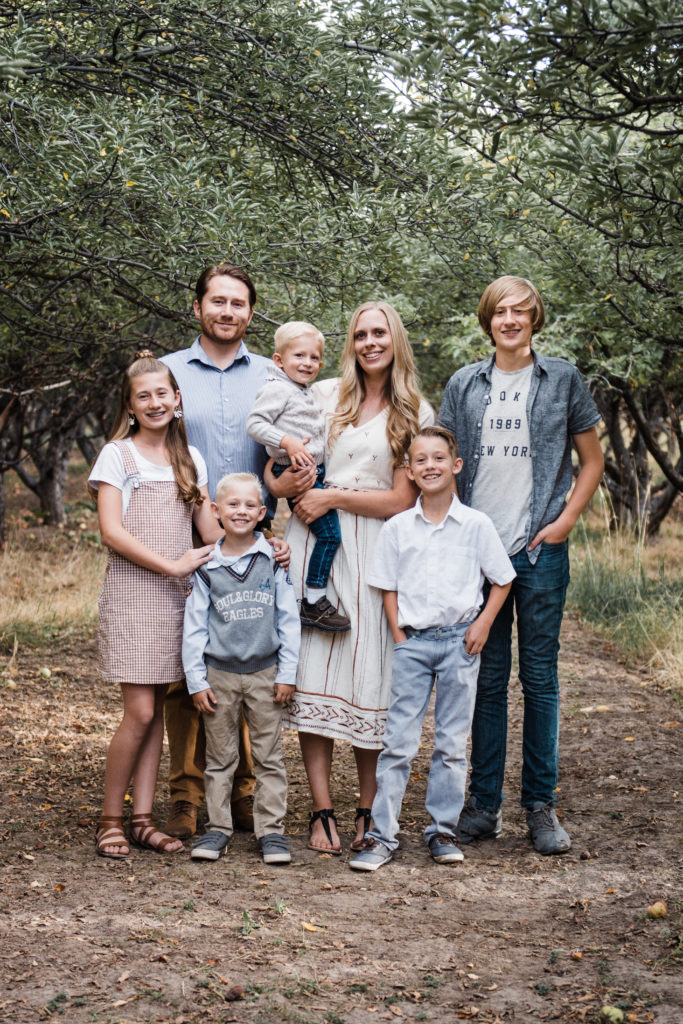
Sarah Coyne poses for a photo with her family. (Sarah Coyne) 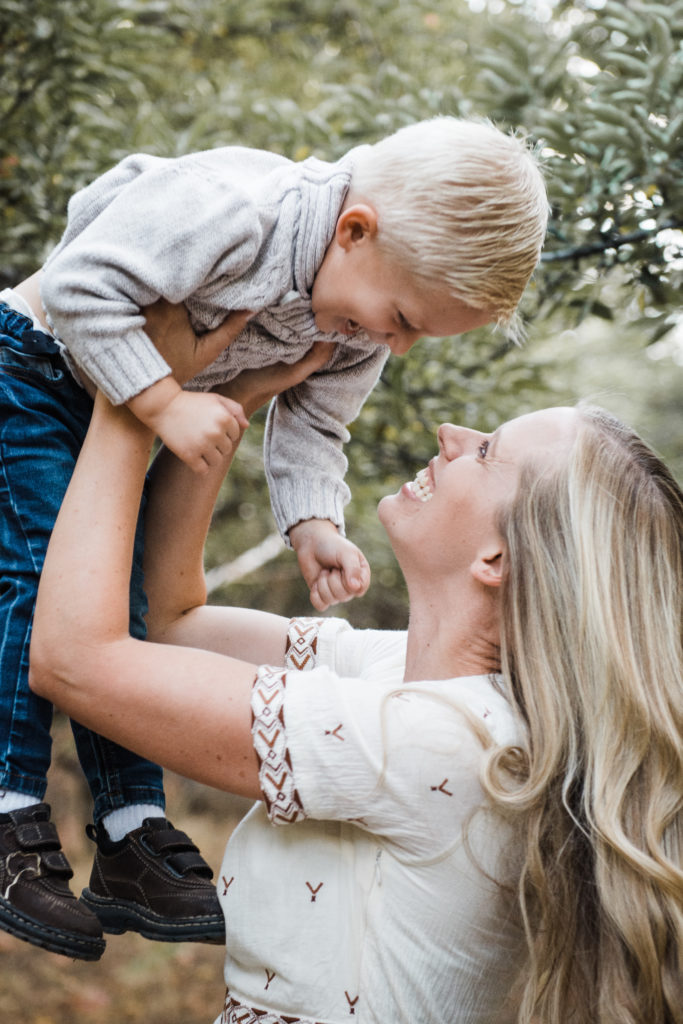
Sarch Coyne holds up her youngest son. (Sarah Coyne) 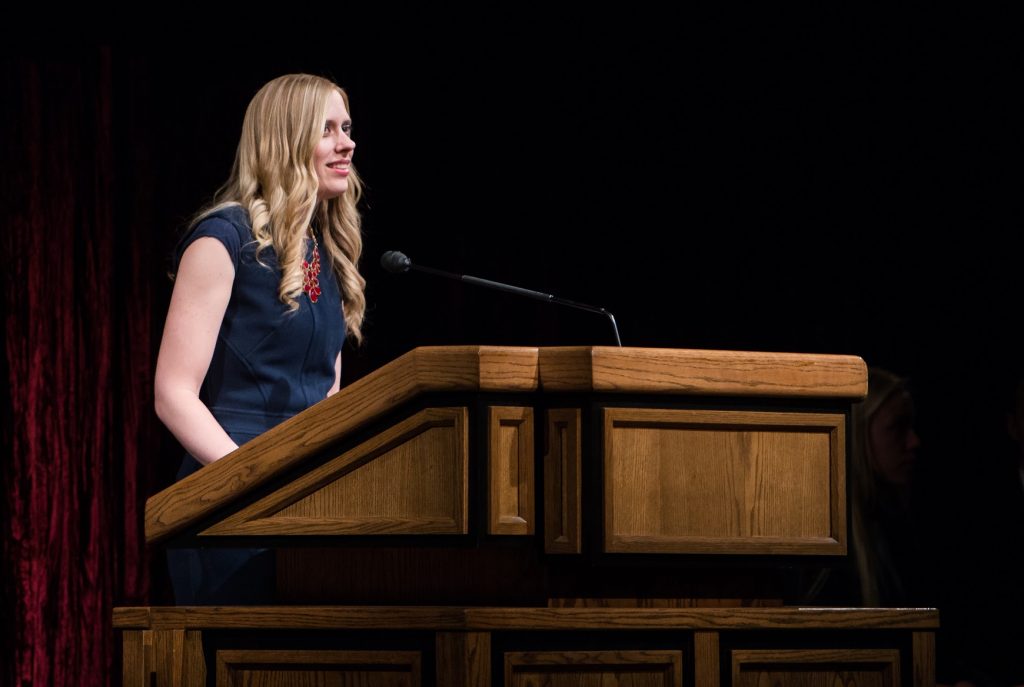
Professor Coyne speaking at a BYU Devotional on May 31, 2016 (Universe Archive)
Like Coyne, Cassiopeia Fletcher, a BYU graduate student studying communications, said her educational journey is led by God. After receiving an MFA in creative writing from Creighton University, Fletcher felt prompted to leave creative writing behind and pursue mass communications.
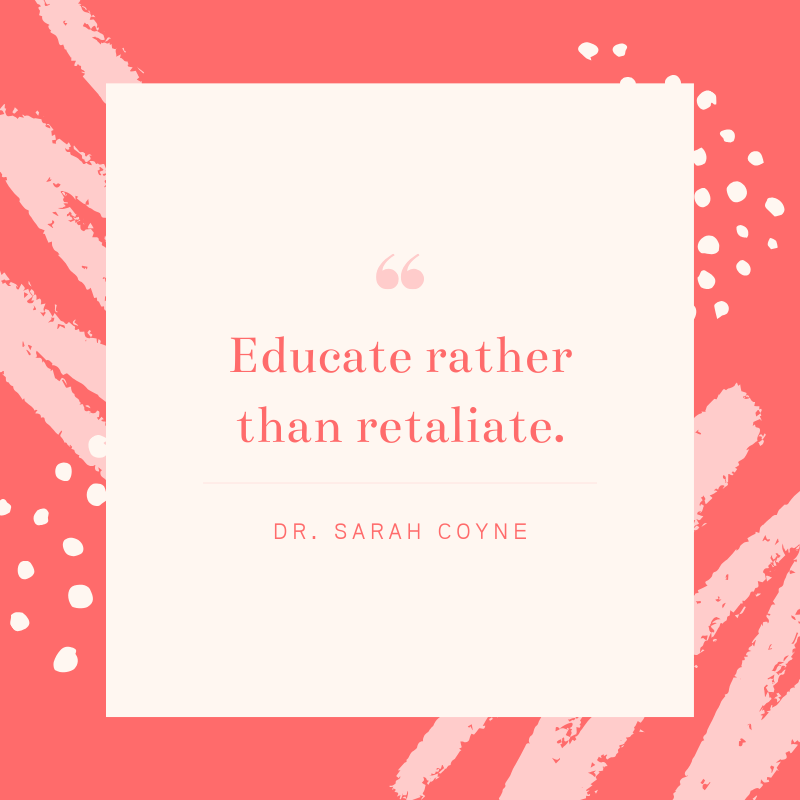
Fletcher has been surprised to see her creative writing knowledge translate so well into the field of mass communications and is happy with her decision. Despite this, Fletcher said she does get some backlash when some people hear about her aspirations.
“I do get comments from people who see me, a single woman in my 30s, pursuing education,” Fletcher said. “People feel entitled to tell others how to live their life, no matter what it may be — they have no right to do so.”
To female students that may be facing similar circumstances, Fletcher said, “Be happy with where you are. You’re not on your own. You don’t need approval from your meddlesome grandmother or aunt. What they think is inconsequential, and you should do what you feel God wants for your life.”
Some other female faculty haven’t faced the same opposition on their journey to their doctorates. Professor Julie Preece of the BYU Academic Support Office said she had lots of support from family and friends while in her Ph.D. program.
She did acknowledge, however, that other students may not have the same support as she had growing up and encouraged them to not look at cultural deterrents as a completely negative obstacle but as an opportunity to increase personal conviction.
“There will always be naysayers,” Preece said. “Those kind of people have a purpose in helping us stay committed to our goals, no matter what.”
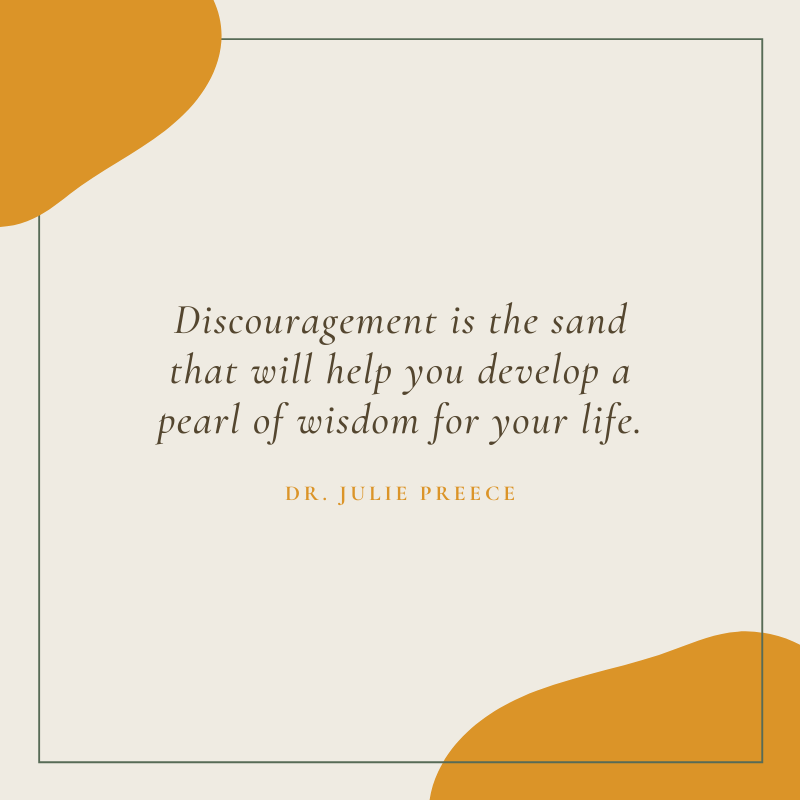
Exercise and wellness student Hailey Goold wants to go to physical therapy school after graduation, a three-year program on top of a bachelor’s degree.
“My whole life there has been an expectation for me to obtain an education,” Goold said. “But growing up, my father worked and my mother helped raise the children, so that’s sort of what I expected for myself. I do want to one day get married and raise a family, but I don’t have as much control over that as I do with education and a potential career, which is why I want to go to physical therapy school.”
While Goold said she has never experienced any resistance from others on her career ambitions, she does appreciate counsel she’s received from mentors and professors encouraging her and other female students to gain a good education.
It’s this mentorship that microbiology professor Julianne Grose says is essential for female students to have when pursuing their dreams.
“Every woman in academia I’ve spoken to has always had someone rooting for them,” Grose said. “I would have never thought about getting a Ph.D. had it not been for a professor, who, my senior year of college, continued to ask me about getting a Ph.D., pushing and supporting me.”
Grose said that professor, along with her husband, was the only support she received. Throughout her Ph.D. program, she would hear comments from friends, ward members and family saying “How would your husband feel if you got a higher degree than him?”
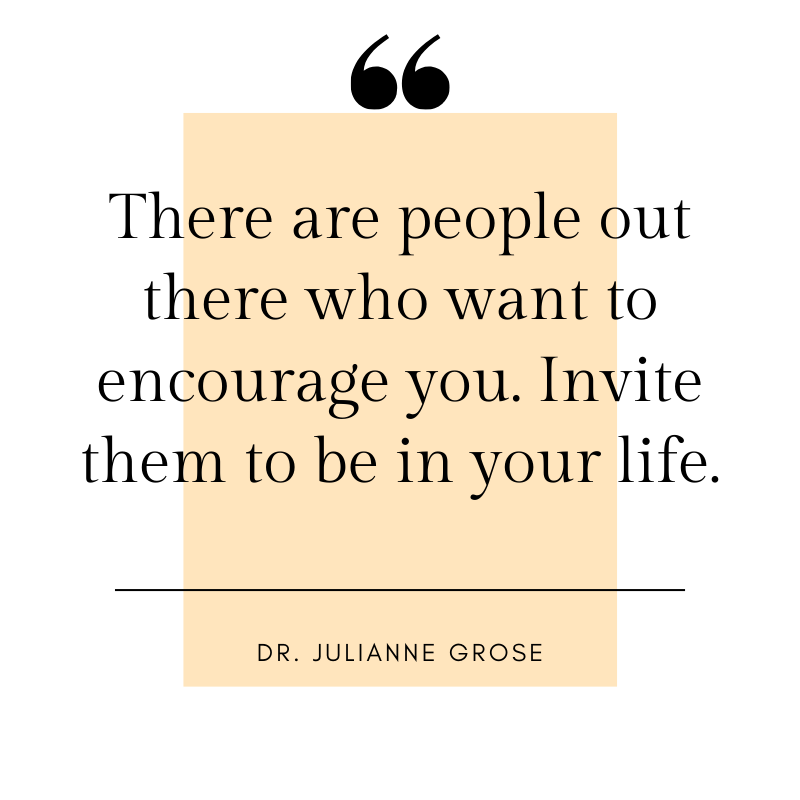
“It took us several years to have a child,” Grose said. “When people heard about this, they would say, ‘Maybe you could get pregnant if you put family first and not school.'”
Grose emphasized the need for women pursuing graduate degrees to have a strong and enthusiastic support system to help balance the negative remarks she said are sure to come.
“There will be days when there will be discouragement. You’re more likely to quit unless you have a support system in the form of mentors,” Grose said.
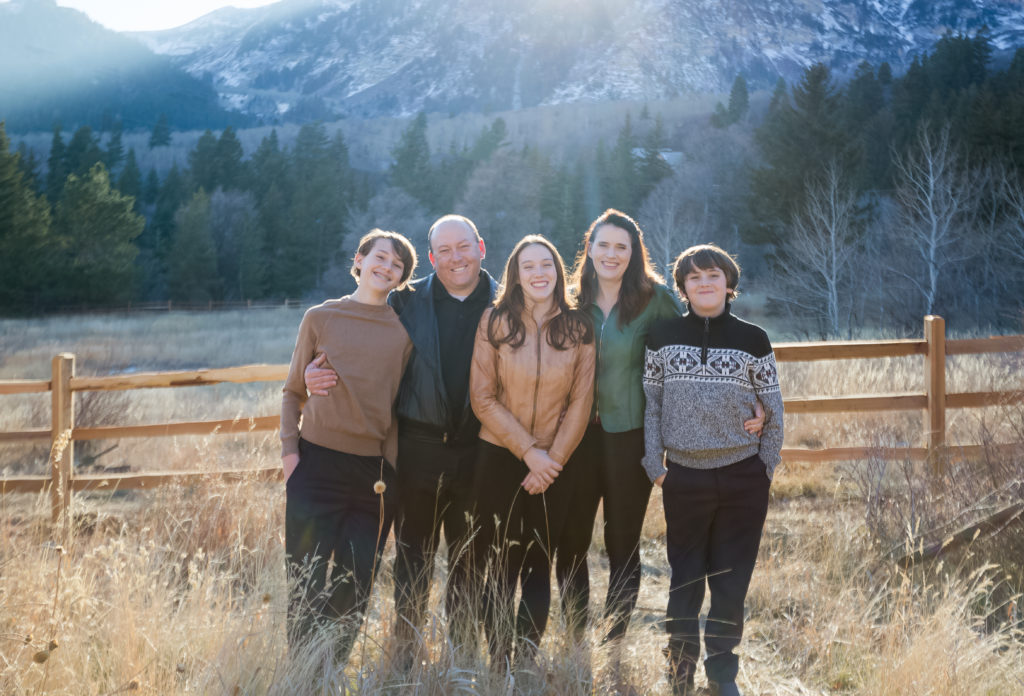
Julianne Grose poses for a photo with her family. (Julianne Grose) 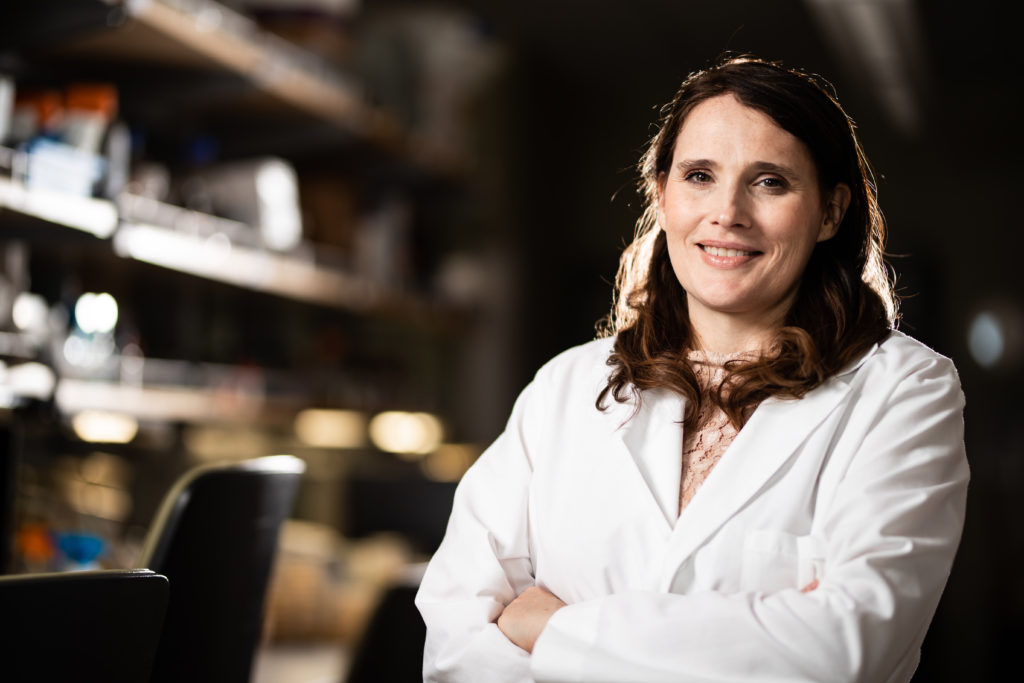
Julianne Grose poses for a photo in an on-campus lab. (BYU Photo)
Microbiology student Savannah Hughes has found mentors in microbiology professor Sandra Hope, her mother and Kathryn Janeway from “Star Trek: Voyager.”
“I look up to Professor Hope because she is incredible, super knowledgeable and doesn’t take any nonsense from anybody. She’s doing exactly what I want to do.” Hughes said. “My mom is studying for the GRE so she can go back to school, which really inspires me. Captain Janeway is amazing because she faces societal micro-aggression like no other.”





